
10+ Training Outline Templates – PDF, Word, Apple Pages
Before an establishment can start and continue, there must be a training outline available as to how you can go…
Sep 10, 2023
As most types of writing, the purpose of academic writing is to communicate the thoughts and ideas you have in your head to a piece of paper. Writing for the academe is writing for education. As a student, you don’t just write to express, you write to inform an audience or the academic community in general. Your writing is the only way into which your professors can see your thoughts. It is therefore important for you to learn how to write in a way that the reader can understand the message right away with clear points stated, and read through the whole article just to find its meaning or what it is you’re trying to convey. You may also see proposal samples.

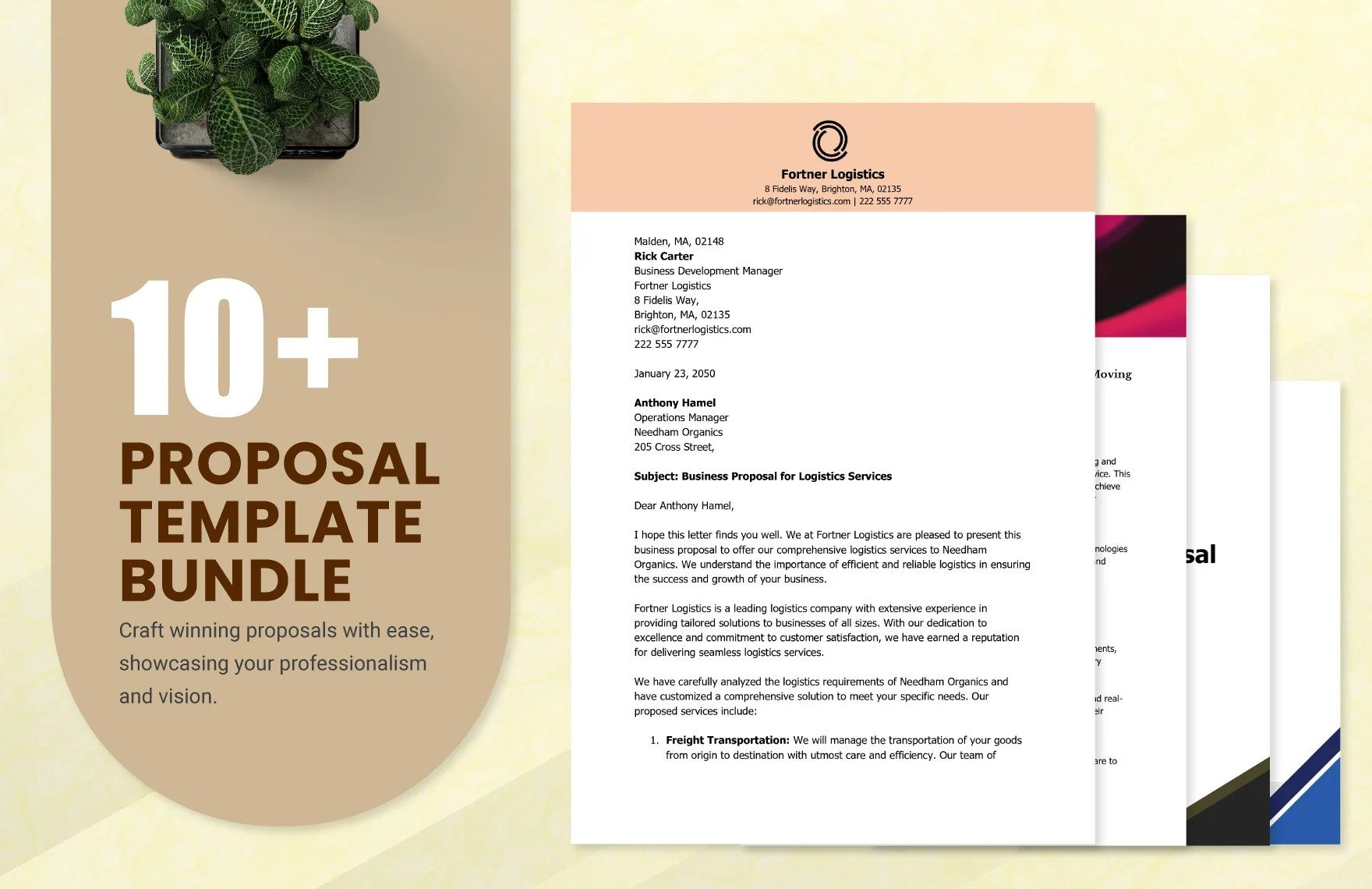
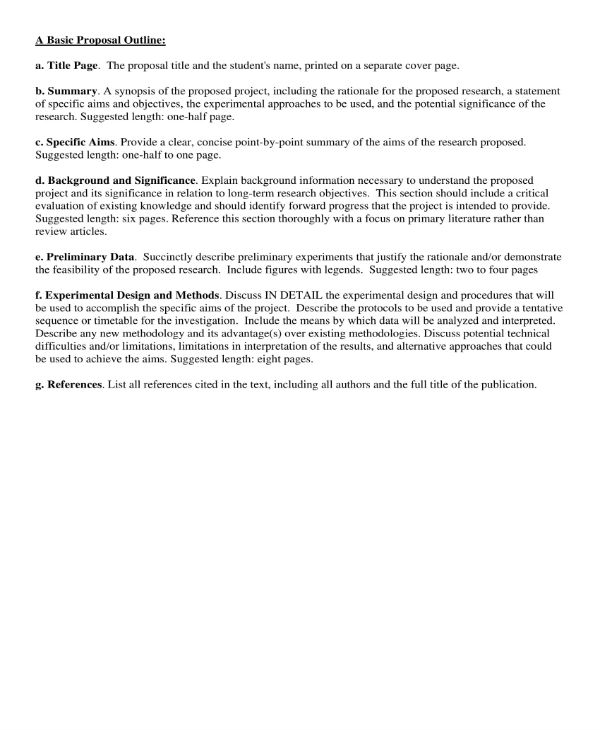 northwestern.edu
northwestern.edu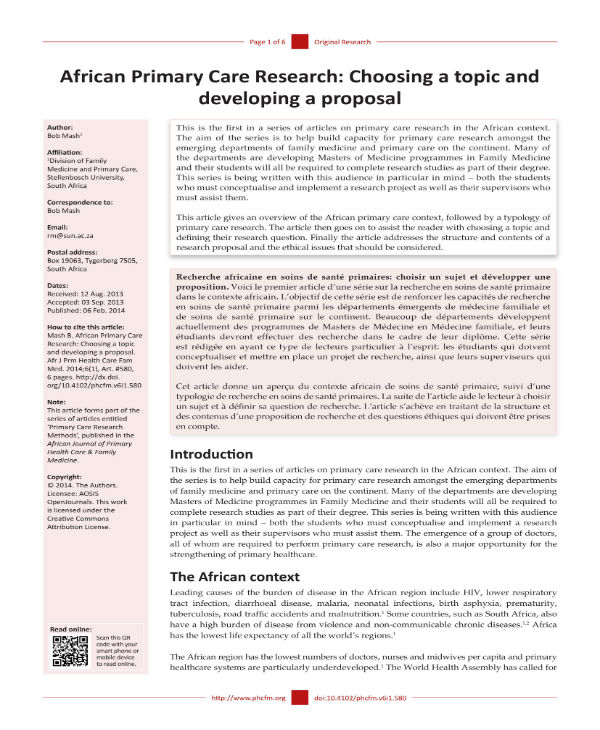 scielo.org.za
scielo.org.za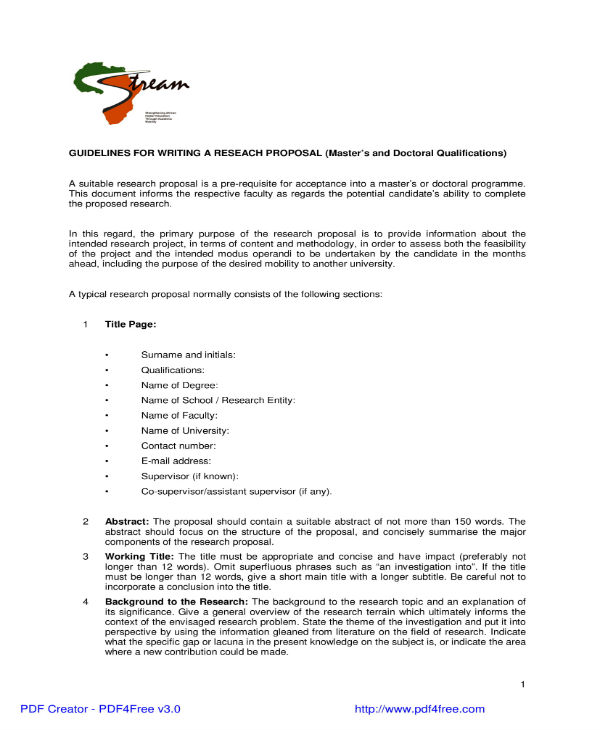 nwu.ac.za
nwu.ac.zaA well-written academic paper lets the writer’s thoughts and arguments show through. Having a paper that’s too wordy but turns out to be a whole page of nonsense drivel failing to make a point drive’s one’s ability to understand into a mudslide either because of confusion or that there is no message to understand at all. Writing like that would find your paper all the way to the trash where the professor or marker thinks it belongs. According to Arthur Schopenhauer “He who writes carelessly confesses thereby at the very outset that he does not attach much importance to his own thoughts.”
Not having a clear message as the result of hasty writing is not having anything to say. It could be easier when you are give free reign to choose a topic to write about. When that happens, you won’t have any excuse to give in turning in a paper that sets a clear message and meaning of your subject. You write because you have something to say about something. And you write because you also choose to say something.You may also see Free Outline Templates.
If your writing is muddy then it would give the reader the impression that your mind is having a hard time with thought processing, that they’re also muddy. The best way through being able to write a product of clear thinking is writing an outline first. But you won’t have an outline to write if you haven’t chosen a topic, so your first task is choosing what topic to write about so that you can create a proposal outline about it later. You may also see Research Project Proposal Outline Templates.
College scholarships and applications, research and term papers, high school and middle school essays and homework, and job applications would at some point or another, require you to write about something, whether it is to contribute to the existing literature about your field or discipline, to test your comprehension and writing skills or simply to check if you have the ability to use writing to communicate. In the real world, you may still be writing proposals, and so we have a few tips to guide you through writing one for a topic:
First of all why would you write about anything else you don’t care much for? Even the most ambitious works gained ground because it had sparked the interest of its researchers. You should do the same because it would also determine how much effort you would be able to put in the actual writing, enough for it to get the approval of the audience or your professor. The whole point of writing a topic proposal is that you want to discuss something that you think is interesting or worth writing about. Otherwise, your proposal would have been for nothing if you’re okay with any topic that comes your way. Anybody reading your paper would also be able to tell if you are passionate about your topic. Your enthusiasm (or lack thereof) would show through because your writing will always give you away, one way or another. You may also see Grant Proposal Outline Templates
Naturally, if you are interested about a topic, you also have a general idea about it, enough for you to want to tackle it more. While taking on a more challenging project could turn out successful, chances are, you would have a better outcome with something you already know about. Your writing process would then be faster but may be no less easier, although you can save a lot of time and effort on finishing touches later since you’ll be doing less research. You could get to writing your paper faster because you would already know how to approach the topic. You may also see Essay Proposal Outline Templates.
If you already have an idea regarding what you want to write about, ask yourself if it is something you will be able to discuss and explore in a limited amount of space. Your topic and the first idea that comes to mind, would always be too broad and bigger than any number of pages can ever do justice with. Continue to refine your topic until it becomes more focused and manageable. For example, in a proposal for literature class literary analysis, the topic “The Works of Virginia Woolf” is not a challenge you want to take on unless you’re ready to write a 500-page manuscript. Instead, you could try exploring what you can do with “Virginia Woolf’s Literary Themes of Feminism.” You may still narrow it to a more refined version by focusing on just one or two works with feminist themes or undertones. You may also see Research Proposal Outline Templates.
Writing style isn’t the deciding factor in writing about a topic or a proposal. But if you have an interesting way of approaching the topic, your writing will be more focused and it would offer more structure. It would also help a lot in defining your actual research paper. For example a historical analysis on the changes in American society, would be far too broad to tackle. Instead, refine the topic to a specific time period or the changes in their Land Reform, Voting Rights or perhaps you can put the focus on the most defining moments in American society during the 60’s. There are a lot you can explore and the more you refine, the better your paper would be. Another example is European Football. That isn’t a topic. That’s too big. But a certain team’s tactics or football philosophy and how it threatens the opposition is something you can write about. You may also check out here Thesis Proposal Outline Templates.
Even if you already have a good idea of hat you want to write about or what you want type of work you want to contribute to the academic community, you would still need to back them up from reliable sources. Most of the time, an idea is just an idea. It doesn’t make up even a chunk of what your topic should be, that you get stuck on where to go with it. There would also be a lot of things you would need to verify or fact-check and that is something only research can do.
So make it a habit to go to the library and look for books or ask the librarian about the book you need to help you get started on your proposal. Remember that your proposal is also your sales pitch to the professor. It is therefore very important to convince them that the topic you chose is worth writing about, and for that, you need a good amount of research. You need materials to read more about football, American history, feminist literature and whatever it is you want to chose to write about. Google is very helpful for sure with a vast source of information but Google isn’t foolproof. You should also need actual books, so off to the library with you, and gather as much information as necessary, then organize it later. You may also see Research Project Proposal Outline Templates
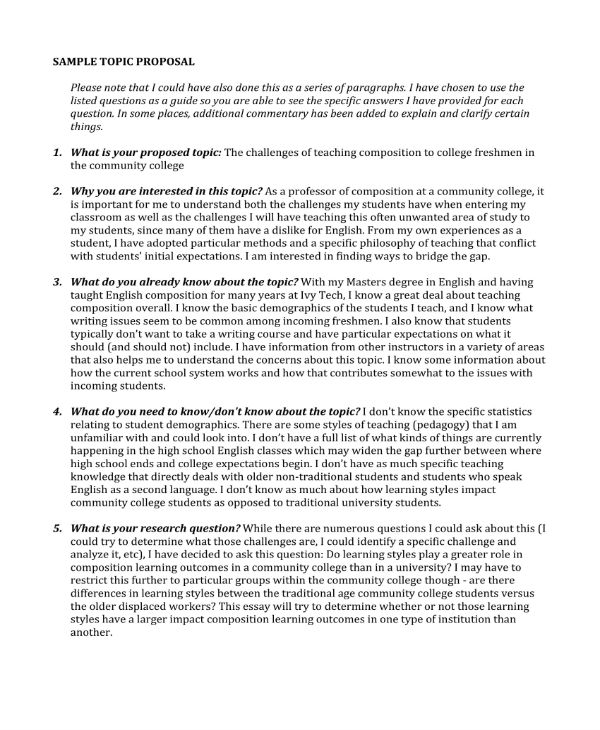 auburn.edu
auburn.edu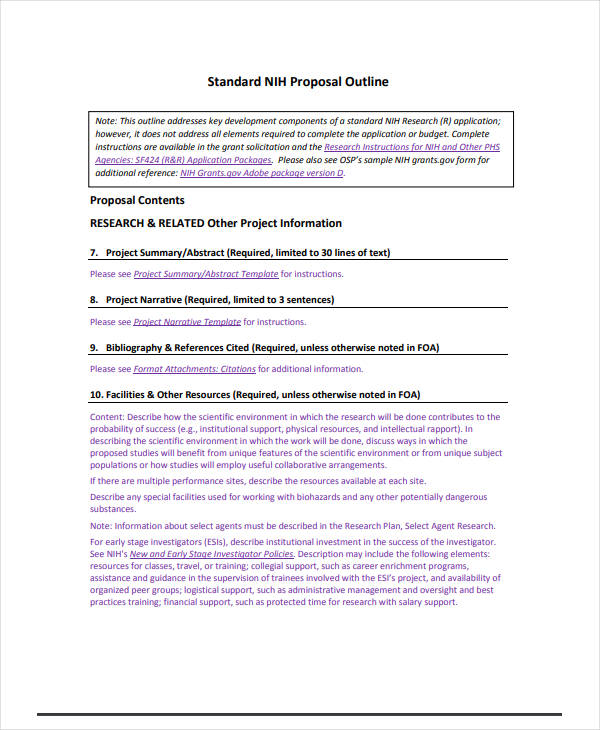 lsu.edu
lsu.edu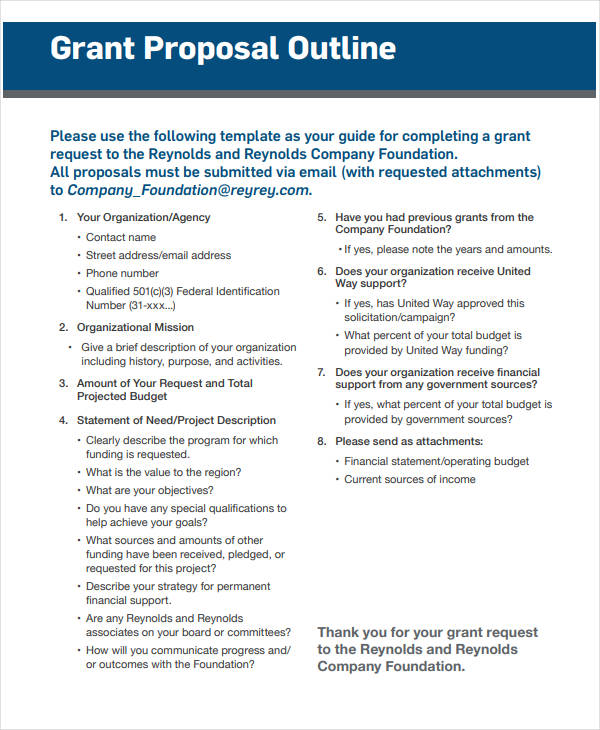 reyrey.com
reyrey.com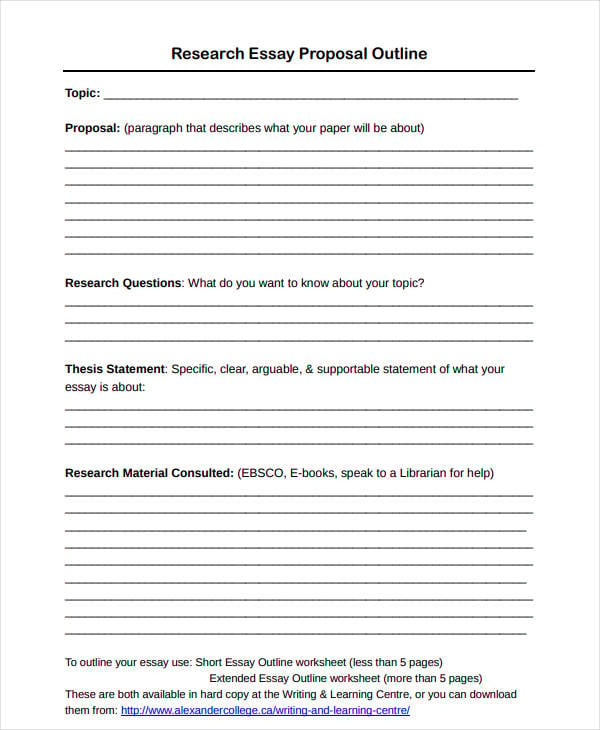 alexandercollege.ca
alexandercollege.ca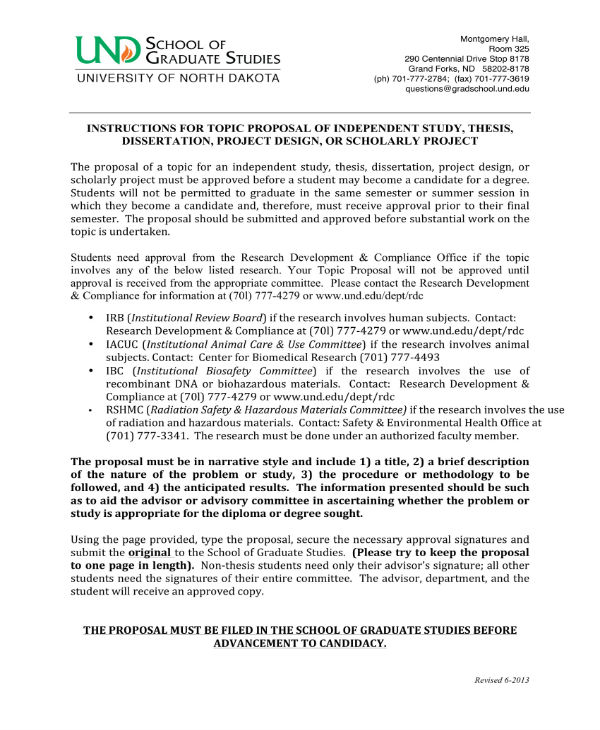 graduateschool.und.edu
graduateschool.und.edu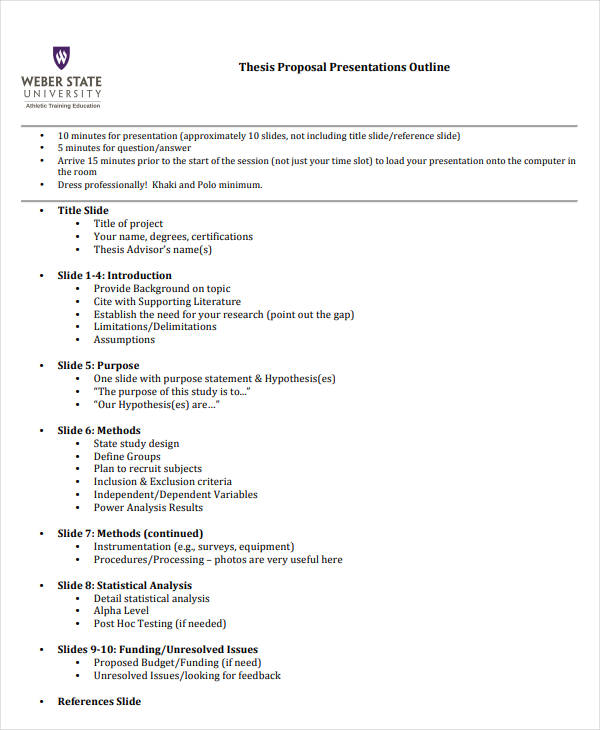 apps.weber.edu
apps.weber.edu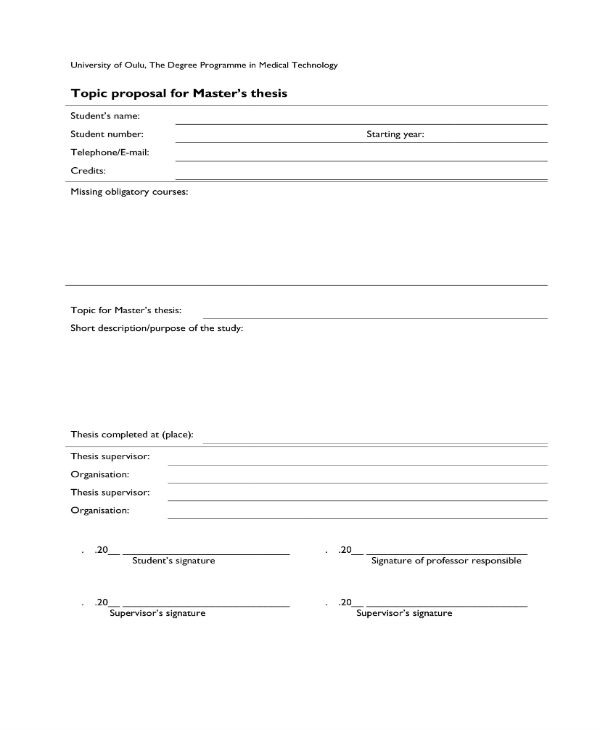 oulu.fi
oulu.fi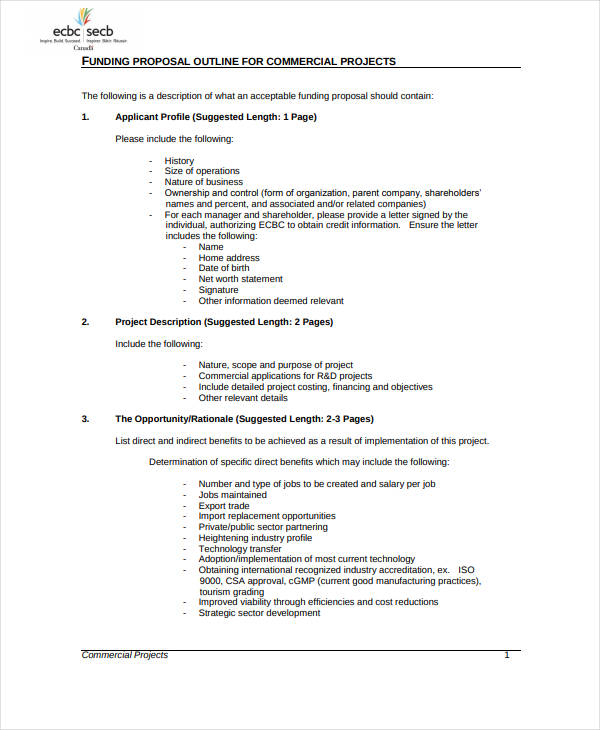 ecbc-secb.gc.ca
ecbc-secb.gc.ca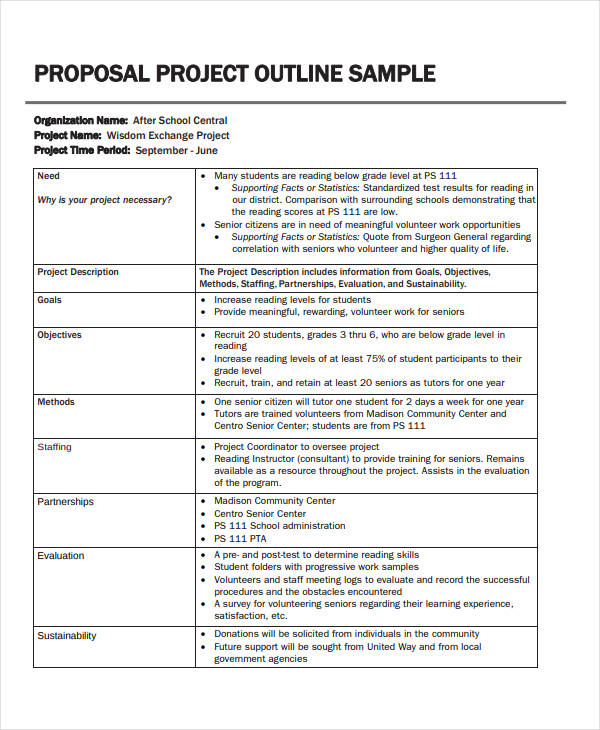 ohsla.info
ohsla.info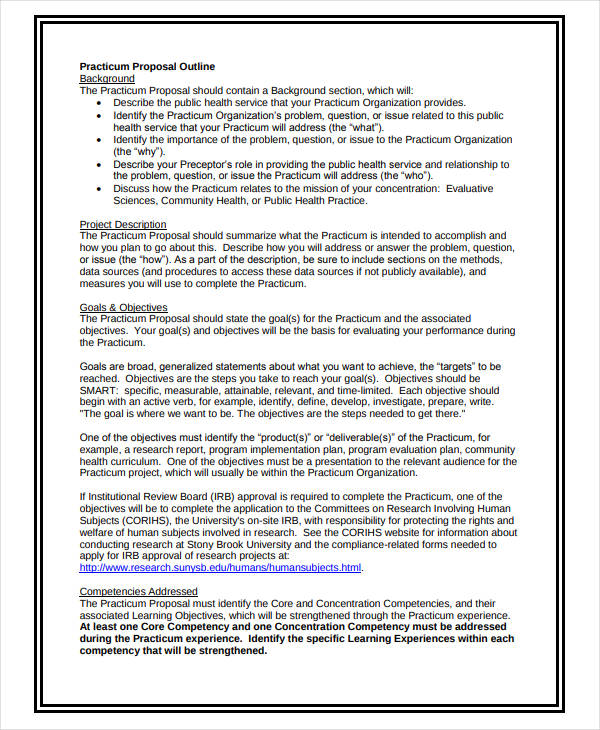 publichealth.stonybrookmedicine.edu
publichealth.stonybrookmedicine.eduMost people who starts writing a proposal for a topic have an ultimate goal. Those who are in the academe have the goal to get it approved then published. Ideally, research is written because you have an audience that would benefit from it and you may already have this audience in mind when you made a choice about what topic to write. You may be passionate about a topic but what is research without an audience whose needs are should be met? You need to establish what the topic is for so that you can get your message across or whoever it should go to.
What are you writing this for? Who are you writing this for? Remember that the goal of academic writing is to produce something for an intended audience or reader. Furthermore, a research topic or even a proposal that doesn’t interest anyone would find it hard to receive funding to push through and be conducted. Make sure it counts. You may also see Informal Outline Templates.

Before an establishment can start and continue, there must be a training outline available as to how you can go…

Writing an autobiography for each person is a distinctly individual experience but there are some topics that are essential to…
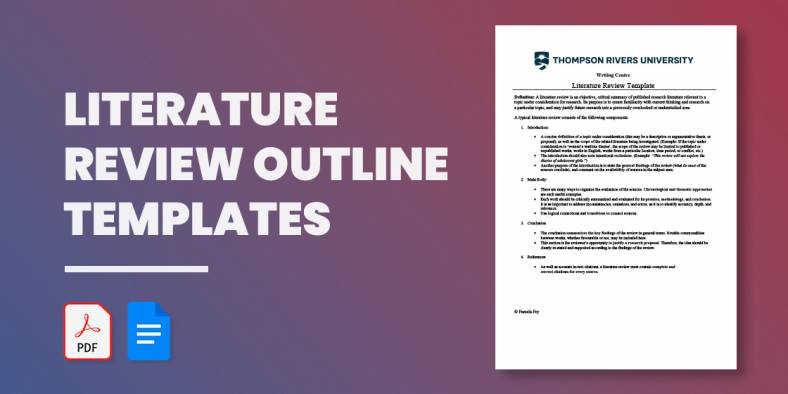
There are some basic criteria that one must judge a work of literature on, irrespective of genre. Typing them out…
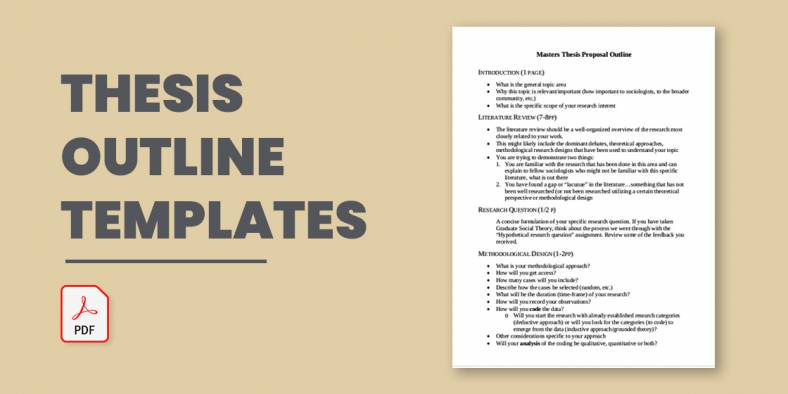
A thesis outline templates is made to ensure that the plans for the creation of a thesis is put together…

An essential tool in planning a project, drafting a research study, writing a story, or studying for an upcoming test…

As most types of writing, the purpose of academic writing is to communicate the thoughts and ideas you have in…

Curiosity and a great sense of wonder. These are perhaps two of mankind’s most redeeming qualities, especially that these hard,…
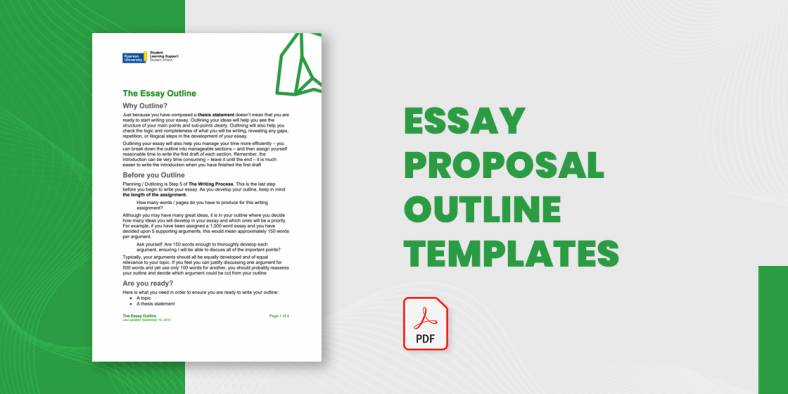
Remember your elementary school days? As a fifth grader weren’t you already asked to write about something you love, maybe…

Business branding is a necessity. Not only does it help people to identify your business, but it also helps with…